Top tech trends for 2012
By Staff Writer 13 January 2012 | Categories: feature articlesIn the technology space, 2011 was certainly an eventful year, and we anticipate that 2012 will be no less interesting. Technological progress certainly seems to be accelerating exponentially; with developments reshaping the tech landscape within short periods. Keeping that in mind, here are the tech trends that we anticipate for the year ahead.
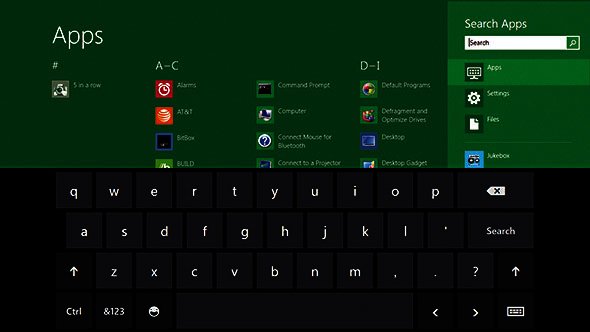
1. For PCs and tablets: Windows 8
The phrase every dog has its day may well apply to Microsoft this year, with 2012 potentially being Windows 8's time in the sun. More than updating its already successful Windows 7 platform, the company has been in need of an unique offering to enable it to compete with Apple's iOS and Google's Android on the tablet front. Additionally, it needs to make up for lost time, as the company undeniably fell behind its rivals in the tablet race during 2011, with Apple's iOS and Google's Android platform taking the lead.
For starters, Windows 8 brings an attractive new Metro interface to the table (familiar to those who've used Windows Phone), which is far more modern than its previous iterations. Most importantly, while Metro can be navigated with a mouse and keyboard, it has been designed to serve as a touch interface as well.
As on Windows Phone 7, the operating system centres around using live tiles. These can accommodate everything from different apps, files, media players to links and RSS feeds. The tiles will also be able to provide information without needing to first be opened. Additionally, apps will be able to work together; practical applications of this could include attaching a photo to an email from a variety of locations, such as Facebook or Flickr, as well as one's hard drive. From what we've seen, it's an intuitive and enjoyable experience.
Already two companies, Nokia and HP, are banking on Windows 8, as both have expressed their intention to create tablet's running on Microsoft's new platform. Meanwhile, Microsoft is hard at work enticing developers to turn their attention to developing apps for Windows 8 - by offering them a greater percentage of profits than afforded by the Android or Apple App Store once they reach a certain level of sales.
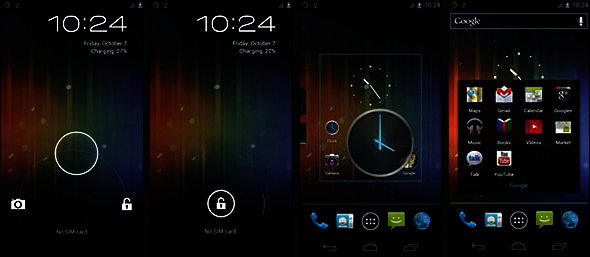
2. A good licking: Android Ice Cream Sandwich
The world's most widely utilised mobile platform is about to get even better with Google marrying the ease of use of the Android Gingerbread smartphone OS with the visual eyecandy that is its Honeycomb tablet OS, resulting in Ice Cream Sandwich (4.0, ICS). Having one version of Android running on of smartphones and tablets is crucial for the company, as it goes a long way towards fixing the rampant OS fragmentation that's making life difficult for app developers.
Some of the features found on ICS include resizable widgets, a new font optimised for HD display and the use of adaptable onscreen buttons in place of hardware buttons. Google included a new mobile web browser that sports the ability to sync your mobile bookmarks with Google Chrome, while Gmail users will appreciate the improved Gmail app, allowing them to quickly swipe through emails in their inbox, even when they're offline.
Find it here:
The first smartphone operating on Android 4.0 is Samsung's Galaxy Nexus which should arrive in SA early this year (see p2), while ICS will make its tablet debut on the Asus Eee Pad Transformer Prime, which is also the first tablet powered by Nvidia's quad-core Tegra 3 processor, becoming available in March locally.
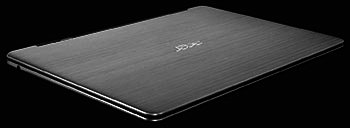 3. Super Ultra! The rise of the ultrabook
3. Super Ultra! The rise of the ultrabook
Think about Kate Moss, but with the power of Bismarck du Plessis. You're now close to imagining the biggest thing the notebook industry have experienced since the netbook came and went. See p11 for more info.
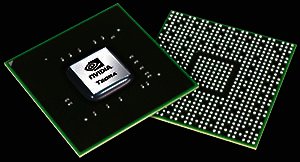 4. Tegra 3: Processor of Promise
4. Tegra 3: Processor of Promise
More power and better battery life are what Nvidia's Tegra 3 system on a chip promises for both tablets and smartphones. See p12 for more on this quad-core processor.
5. Bigger is better for screen size
Cellphones seem to be coming full circle - they started out large (and admittedly chunky) - became very small, and now, larger screens seem to be the order of the day. Two years ago the Samsung Galaxy's 4" looked big, now 4.2" screens have become the de facto standard. The Galaxy Nexus sports a 4.6" screen while the Samsung Note hybrid (see p12) is pushing the pocketable boundries with its delicious 5.3" screen. Will we be looking at 5" ruling the smartphone roost at the end of the year?
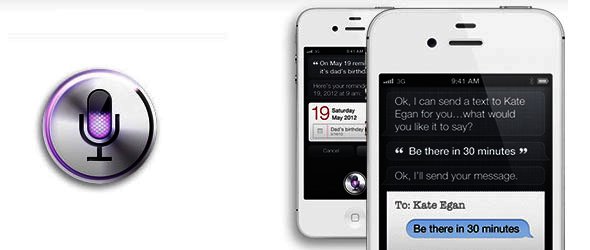
6. Look mom, no hands. Handless control matures
Besides unveiling the new iPhone in October 2011, Apple also introduced Siri, an intelligent digital assistant for the 4S. Although voice commands and web search functionality weren't new, Siri's ability to understand context was, allowing users to speak naturally when they ask it questions. Not to be outdone, Google is working on a Siri rival called Majel, named after departed actress Majel Barrett-Roddenberry who provided the computerised voice of the Starship Enterprise in Star Trek.
It's not only voice that we'll use to interact with devices, as Face Unlock for Android 4.0 enables users to unlock smartphones via face scanning, whilst gesture-based control comes to the PC this year courtesy of Microsoft's new Kinect hardware for Windows PCs.

7. And we predict even more of the cloud
It seemed that everywhere we turned last year, we heard one word: cloud. In 2011, cloud was everywhere, in work, in business, in play, and we expect cloud to become even more prolific in 2012.
Microsoft has launched its cloud based Office 360 service in South Africa (see p15), while Apple's iCloud service and Google's own Docs offering are also available. And then of course, there are already more cloud-based apps than you can shake a stick at. Most particularly, OneNote, Evernote, and Any.do seem intent on proving that people really do want to store their notes and to-do lists in the cloud.
Last year we also saw the start of cloud-based gaming, with OnLive launching in the middle of the year, providing high quality gaming performance without the need for the expensive hardware to back it up.
Yes, cloud is already prominent, but in 2012, we suspect this trend will only continue, and grow.
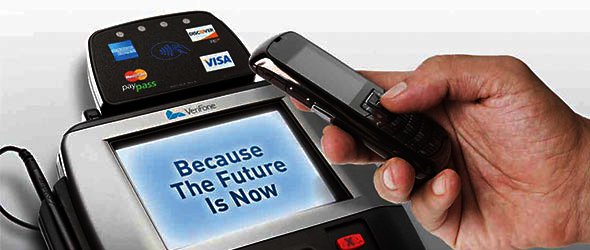
8. Just swipe your phone: NFC payments
Expect near field communication (NFC) to become more of a catchphrase this year, as the ability to transfer information wireless using this hardware-based technology becomes more visible. Absa's rollout of its NFC payment project should enable people to start paying for small purchases, tickets and transportation using only their smartphone, by tapping their device of choice to a reader. This while Standard Bank's Beyond Payments subsidiary also implemented South Africa's first cashless NFC system at the Oppikoppi Unknown Brother rock festival to great success last year.
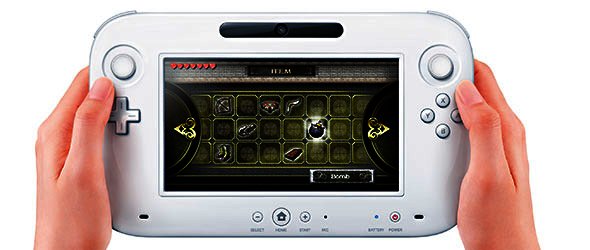
9. U in? The start of the next-gen consoles
Nintendo's Wii console has always appealed to the casual gamer, with hardcore gamers opting for one of the HD consoles (PS3 or Xbox 360). The company is looking to change this with the Wii's successor dubbed the Wii U, which will reportedly boast an IBM quad-core 3 GHz CPU, 768 MB of RAM (possibly 1 GB) and an AMD Radeon-based high definition GPU. Its hardware power puts the new console firmly in the same league as the Xbox 360 and PS3, and enables it to offer full HD (1080p) graphics. More impressive though is the new console's controller that could almost be mistaken for a tablet, since it features a 6.2" touchscreen, accelerometer, gyroscope, camera, a microphone and speakers.
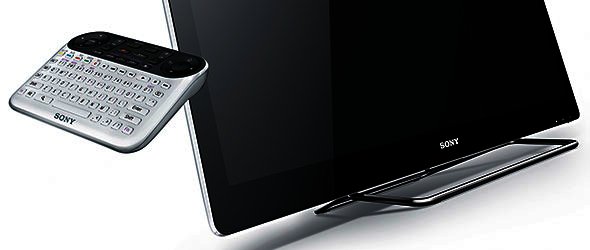
10. Integrated entertainment
One of the more exciting trends happening right now, and which we expect to see more of this year, is integrated entertainment. Examples of this include internet enabled TV's which are already available and which we anticipate will include even greater functionality in the near future.
Sony's four-screen strategy sees them punting better integration between TV, smartphones, tablets and PCs, while Apple also has high hopes for Apple TV, with rumours that you'll be able to wirelessly stream a movie to TV, with the ability to pick up your iPhone to continue where you left off. Another example can be found on the forthcoming PlayStation Vita, which will enable users to stream content between their PS3 and the portable device. This means one will be able to start a game on the PS3, pause it, and start playing from the same spot using the Vita.
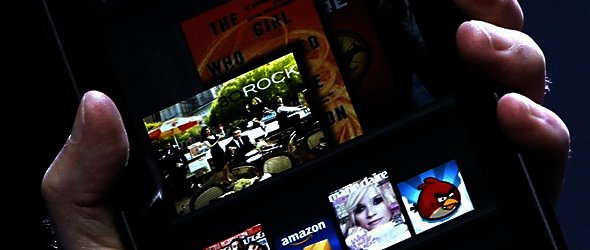
11. Prices are falling (hopefully)
During 2011 we saw the prices of entry-level smartphones (but not the number of functions) drop below R2000, allowing many more users to purchase one. This year we hope to see the prices of these devices dropping to under R1500, while we also wish to see 7" tablets becoming available at this price point (Amazon's Kindle Fire retails for $200, about R1630). What about 10" Android tablets? R3000 will make us happy, but with a weaker Rand it's looking increasingly more difficult. [RN+HD]
Go to part 2
Article first published in TechSmart 100, January 2012.
Most Read Articles

Have Your Say
What new tech or developments are you most anticipating this year?


